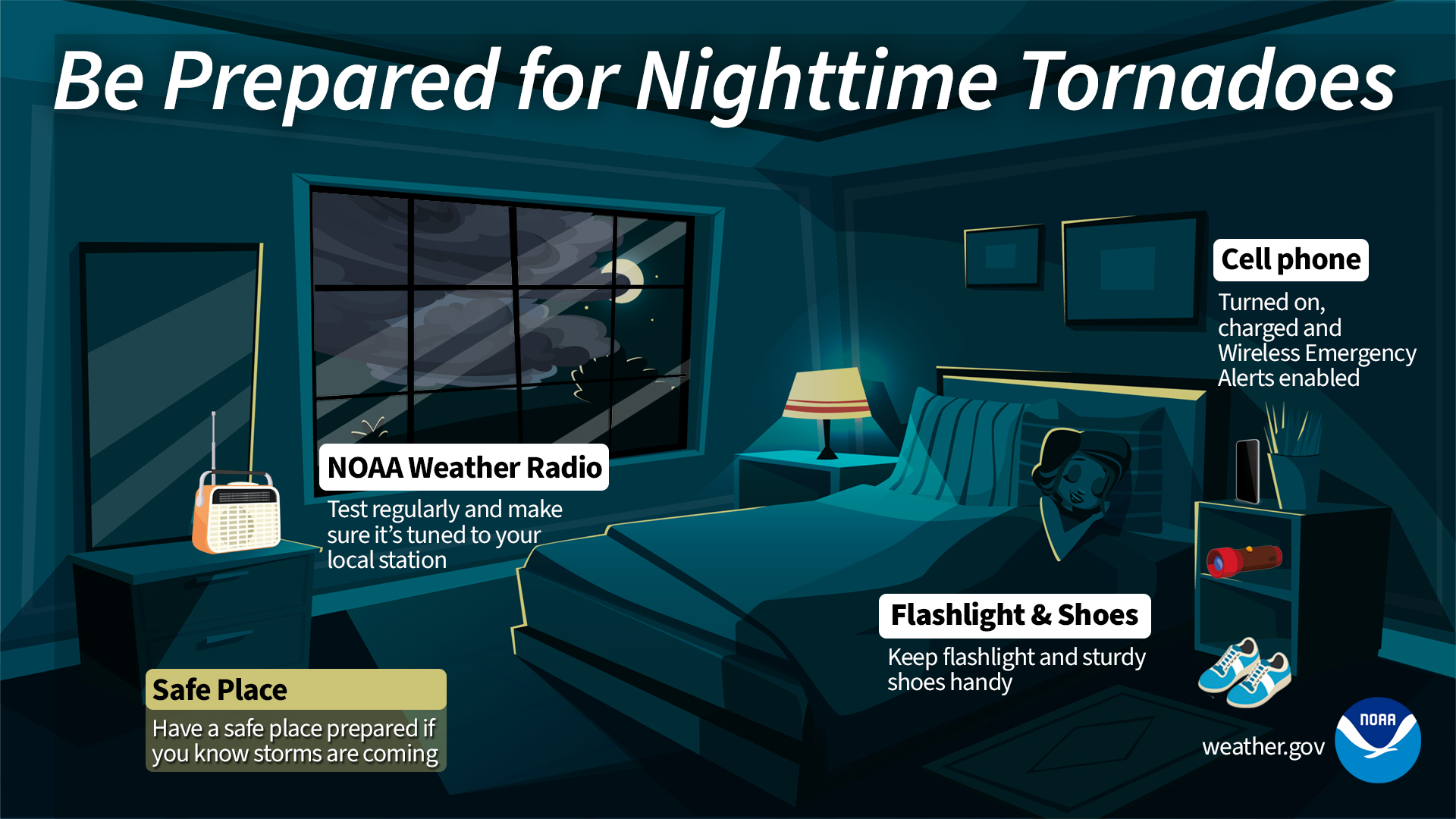
March 1, 2024 – Spring is here! (Though some might say, there wasn’t much of a winter)
At the National Weather Service, we usher in each season with a slew of new safety tips and infographics on key pertinent weather hazards to keep everyone ahead of the storm. Our 2024 Spring Safety Campaign features the warmer weather dangers from tornadoes to rip currents and more, with 8 new graphics.
The clash of cold and warm air is common during spring, and one of the unfortunate outcomes of this mixture is tornadoes. We created new infographics to help you prepare in advance of and even during a tornado.
A recommended way to receive emergency information is through NOAA Weather Radio. If your electricity is out from severe thunderstorms, NOAA Weather Radio has you covered with constant local National Weather Service forecast and warning information.
So what’s the best way to use this weather safety information to communicate with local or regional communities and the media?
We spoke to National Weather Service Warning Coordination Meteorologists Erik Heden, from Morehead City, North Carolina, and Tim Halbach, from Milwaukee, Wisconsin, to find out how they use the seasonal safety campaign materials to keep their communities informed about spring weather hazards.
Tell us how you use the NWS seasonal safety campaign infographics and other materials?
Erik: “The Morehead City team uses the seasonal campaigns regularly, especially during hurricane, severe and winter preparedness weeks. We routinely push these tips and infographics out to core partners, like emergency managers and Weather Ready Nation Ambassadors. Overall, the safety infographics are a fantastic resource and way to inform our community about weather hazards!”
Do you prioritize outreach about certain hazards based on societal impacts?
Tim: “We’ve focused on vulnerable populations here in southeast Wisconsin and have meetings with those communities to find out their needs and concerns, especially prior to high-end weather events.”
Erik: “We prioritize outreach based on societal impacts using a vulnerability atlas that we developed here at the forecast office.”
What innovative ways has your office used the seasonal safety information to improve preparedness in your community overall?
Erik: “Safety messaging has helped us with campaigns such as #LoveTheBeachRespectTheOcean. Dare County, North Carolina, won an award for this site and we meet regularly with them to discuss better ways of messaging, as rip currents are the deadliest killer in our area.”
The National Weather Service provides seasonal weather safety campaign materials to support the efforts of TV meteorologists and others as they engage their communities to be more weather aware.
Our campaign infographics provide a quick snapshot of the recommended steps people can take to increase their resilience to spring weather hazards. We invite you to share them on social media and incorporate them into community outreach efforts!